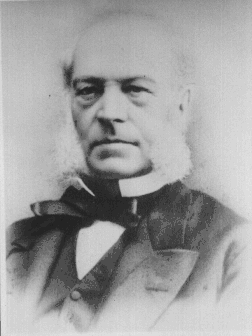Edward Headlam Greenhow facts for kids
Edward Headlam Greenhow (born in 1814, died April 22, 1888) was an English doctor. He was a very important person in his time because he studied how diseases spread and how to keep people healthy. He was also a good doctor who treated patients and taught others about medicine.
Life and Career
Edward Greenhow was born in North Shields in 1814. He studied medicine in Edinburgh and Montpellier. After finishing his studies, he joined his father's medical practice in North Shields. His grandfather, father, and uncle were all doctors too!
Edward first worked as a surgeon. He and his uncle, Thomas Michael Greenhow, were both part of the North of England Medical Association. Edward even became its president in 1841. For 18 years, he worked in Newcastle-upon-Tyne. During this time, he did a lot to improve sanitation, which means making sure places are clean and healthy. He became a member of the Town Council of Tynemouth and led the Board of Health there.
In 1852, Greenhow earned his M.D. (Medical Doctor) degree from King's College at the University of Aberdeen. In 1853, he moved to London to work as a consulting physician. For many years, he focused on public health, which is about keeping whole communities healthy. He became the first person in the country to teach public health at St. Thomas's Hospital.
Greenhow looked into why so many people were dying from diseases in certain parts of England. His findings were published by John Simon, who was a medical officer for the Board of Health. The information Greenhow collected was used to create new laws, like the Public Health Act 1858, which aimed to make Britain healthier.
He also investigated diseases like diphtheria (in 1859) and lung diseases that affected workers such as miners and flax-dressers. His report on lung diseases in 1860–1861 was very important. Greenhow and John Simon believed that cleanliness was key to health. They thought that pollution, like in Liverpool, caused diseases such as typhoid and cholera.
Greenhow's reports as a Medical Officer were very important for helping children. In 1867, his work led to a change in the Workshop Regulation Act. This new law made it illegal to employ children under the age of eight. This was a big step in protecting young workers.
In 1859, Greenhow became a Fellow of the Royal College of Physicians. In 1861, he became an assistant physician at the Middlesex Hospital. He also taught public health and medical law there. By 1871, he was a full physician and lecturer. When he retired in 1880, he became a consulting physician for the hospital.
Greenhow was also a Fellow of the Royal Society (from 1870) and a member of many other medical groups. From 1879 to 1881, he was president of the Clinical Society of London, which he helped create in 1867. He wrote books about diphtheria, chronic bronchitis, and Addison's disease. He even gave special lectures about Addison's disease in 1875 and 1881. He had 11 patients with Addison's disease and found new ways to treat them, helping them live longer.
He served on several important government committees called Royal Commissions. He was also a medical officer for the Pensions Commutation Board from 1870 until his death.
In 1859, Greenhow led the Epidemiological Society of London. This group was started by people like John Snow, who was famous for stopping a cholera outbreak. Greenhow and Snow were both excellent doctors at the Newcastle Infirmary, which later became a medical school. Greenhow's uncle, Dr. Thomas Michael Greenhow, helped establish this medical school.
Edward Headlam Greenhow died suddenly on April 22, 1888. He was returning home to Reigate after working at the Pensions Commutation Board and collapsed at Charing Cross Station.
Family
In 1842, Edward Greenhow married a widow named Mrs. W. Barnard. They had one son, who became a vicar (a type of priest) in Earsdon. His first wife died in 1857. In 1862, he married again, this time to the daughter of Joseph Hume, a Member of Parliament. With his second wife, he had two daughters.
His first cousin was Frances Lupton (born Greenhow), who worked hard to create more educational opportunities for women.
Images for kids
 | Bayard Rustin |
 | Jeannette Carter |
 | Jeremiah A. Brown |



